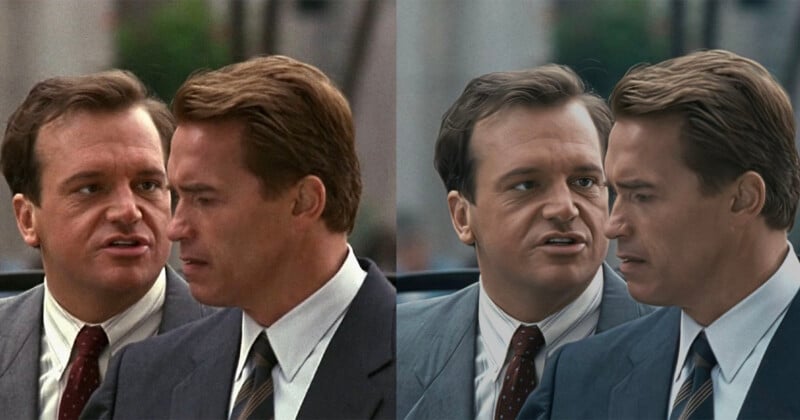
The 1994 James Cameron film True Lies starring Arnold Schwarzenegger was recently re-released in Ultra HD 4K disc format giving viewers the opportunity to watch these classic films in unprecedented detail.
Not only True Lies but Cameron’s The Abyss and sci-fi classic Aliens were also released on Ultra HD Blu-ray with Geoff Burdick, senior vice president of Lightstorm Entertainment, who tells The New York Times that he thinks they “look the best they’ve ever looked.”
But not everyone agrees.
“It just looks weird, in ways that I have difficulty describing,” the journalist Chris Person tells The Times. “It’s plasticine, smooth, embossed at the edges. Skin texture doesn’t look correct. It all looks a little unreal.”
![]()
James Cameron and crew enlisted the help of Park Road Post Production, the Peter Jackson-owned company that uses proprietary machine-learning software to enhance old footage and has released The Beatles: Get Back and They Shall Not Grow Old. But in those films, the original negatives were very old and had to be restored and colorized with the help of AI — something that people didn’t seem to mind too much.
But the original negatives for True Lies and other Cameron movies are still in good shape, leading some to question why Park Road was involved in the remastering process.
“Peter Jackson’s Park Road AI treatment has been SLATHERED all over it,” writes disgruntled film fan Luke Ryan on X (formerly Twitter). “I’ll say it again, this digital painting OVER FILM is disgusting.”
Ryan added that Schwarzenegger’s and Tom Arnold’s faces look like they are “made out of putty.”
AI Has a Bad Rep
Part of the problem is that artificial intelligence is involved: the technology is far from universally popular. Adding to that, AI is often associated with bizarre videos and stolen content.
“People try not to talk about it,” Eric Yang, the founder of AI upscaling company Topaz Labs, tells The Times. “Nobody likes to say that their film was AI upscaled or that a certain release had AI applied to it.”
There was a recent backlash against horror movie Late Night With The Devil after the filmmakers were accused of using AI images in the feature.
Distinguishing Between AI Enhancement and Generative AI
Burdick, of Lightstom Entertainment, says the AI they use to restore films is not the same as an AI image generator like Midjourney or OpenAI’s forthcoming text-to-video model Sora.
“It’s not a question of the negative being damaged,” Burdick says. “But back on the set, maybe you picked the shot that had the most spectacular performance, but the focus puller was a bit off, so it’s a bit soft. There could be a million reasons why it’s not perfect. So now there’s an opportunity to just go in and improve it.”
The executive admits that the restorers must feather the tool as “cracking the knob all the way will make it look like garbage.” But adds that “if we can make it look a little better, we might as well.”
Image credits: 20th Century Fox
